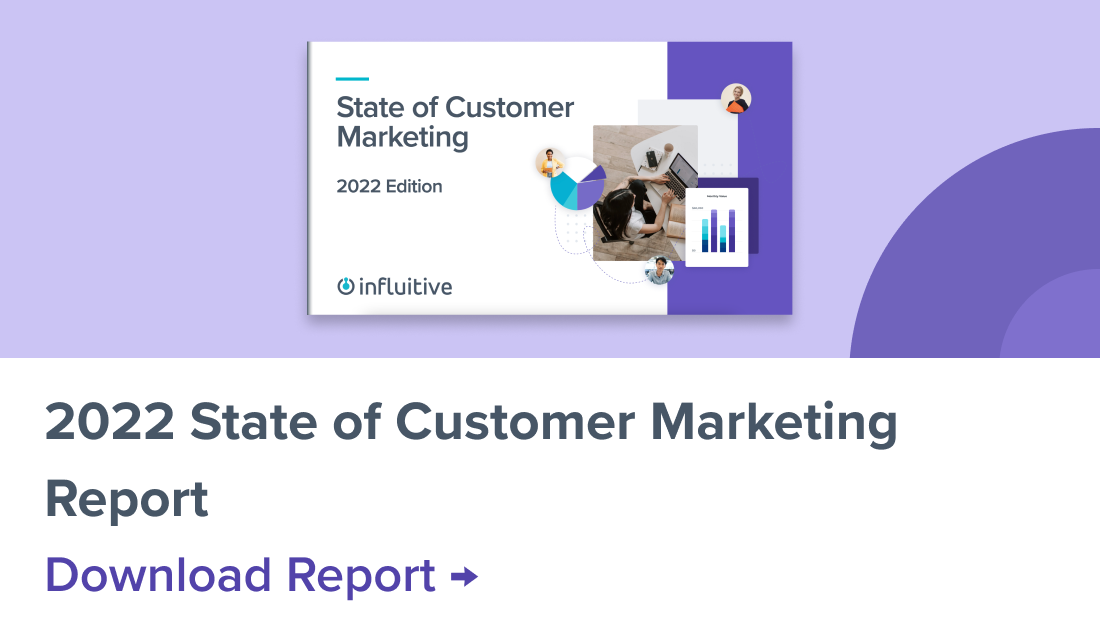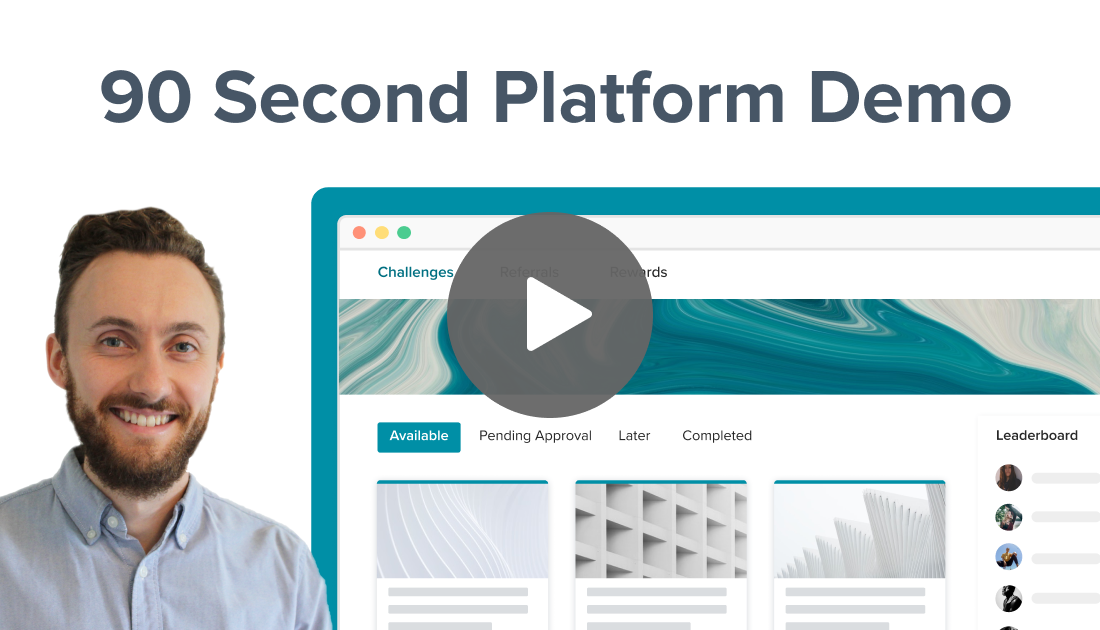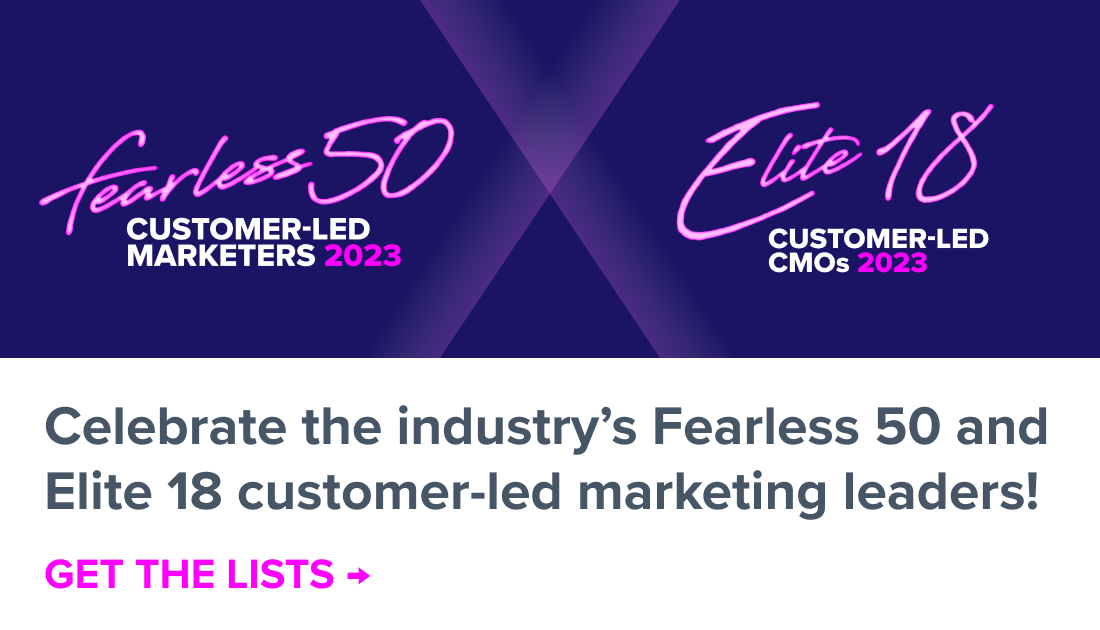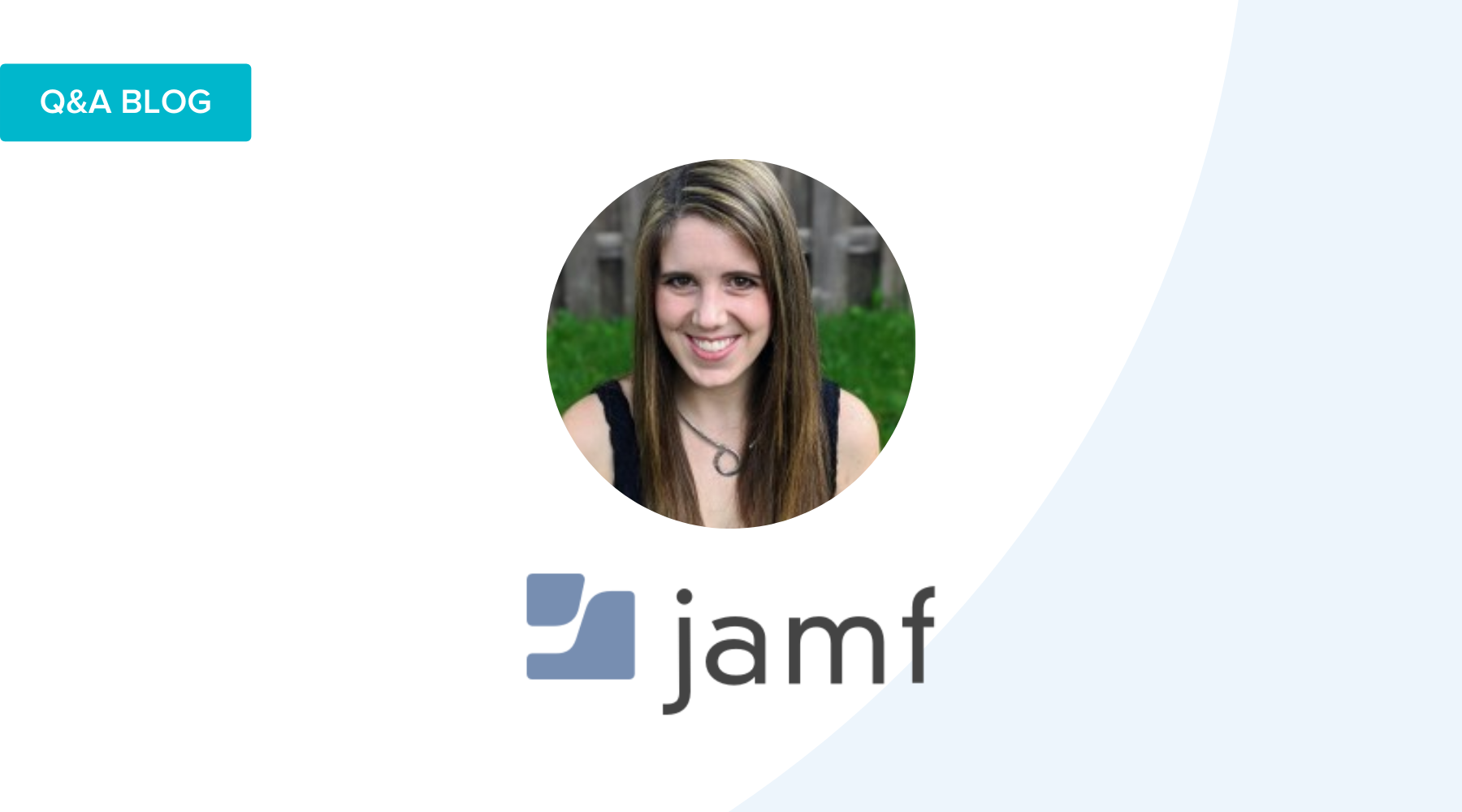Program managers will often fixate on business objectives and center their programs around achieving them but forget to infuse their personality or take the time to build genuine relationships. Without a customer-first approach, relationships will fizzle out, and the program will lack the long-term foundation to succeed.
Jeni Asaba, Manager of Community Engagement & Advocacy at Jamf, is an expert relationship-builder, and her community Jamf Heroes recently won the 2020 Influitive Bammie for “Most Passionate Community.”
In this Influitive Spotlight Recap, Jeni shares her creative and tactical advice for maintaining personal connections at scale, how customer marketing and advocacy fit together, and how Jamf recognizes and rewards customers for their advocacy.
How important is it to build strong and authentic customer relationships?
Customer relationships are critically important, and they are what customer advocacy managers need to focus on day in and day out. For those who have ever heard me discuss this topic before, I’ll often say that customer advocacy or community managers are genuine and authentic. It’s so easy to build surface-level relationships with many people, but it’s much harder to create meaningful, trusting and deep relationships. All that to say, the hard work is worth it.
How do you get others in your organization to believe in the importance of developing customer relationships and act upon them?
You need to make it apparent what these relationships are doing for the organization and demonstrate the value that prioritizing relationships has on the customers themselves. You have to take the time to prove it out and to show the ROI. If you work for a truly customer-centric organization, those will be the things that leaders care about.
It’s much more affordable to keep existing customers than it is to try and sign new ones. So why don’t we treat them really well from the beginning and make them as happy and as successful as they can be? It’s the right thing to do.
What are some ways companies can be more human with their customers?
Here are a few of my tried-and-true tips for doing this well:
- Share a written bio with a photo: My team and many other Jamf employees have created written bios with a headshot and 5 unique facts that customers can access within our Jamf Heroes program. Influitive helps us deliver this valuable written content to customers at scale.
- Engage in conversation: Meet customers wherever they are most comfortable, whether it be Slack, using the Influitive platform Inbox or email.
- Infuse yourself in small, strategic ways: Through challenges, Influitive makes it easy to engage in small ways like highlighting “National Siblings Day” with a photo of your family or by adding a line about why you’re excited about a new product feature from your company. It’s the small personalized pieces that help build a better relationship.
- Lead virtual meetups: We host meetups regularly, and they are the highlight of my day. Everyone should be doing them, bar none.
- Join customers in relationship-building activities: At Jamf, we’ve done virtual sanctuary tours, virtual escape rooms and Missing Maps events with our customers. There are so many great online activities worth considering, but be strategic in selecting events that will appeal to your customers.
- Virtual Coffee Chats: Customers always ask us to find ways to connect them in a 1:1 setting, and it’s something my team and I value as well.
- Snail mail: We recently sent a select group of customers a handwritten card with a Jamf acrylic keychain and sticker set. We did not explicitly state why we sent the gift, but it was to recognize something special they had done for the company. It may be a dying art, but snail mail is a powerful tool for building relationships.
- Co-write a blog: If writing is your thing, collaborate with a customer on a topic of their choice.
- Record a video: Bebrave and vulnerable by recording a short video to thank your customers for taking a specific action or attaining an important goal or milestone.
How can you build relationships that are both personal and scalable?
Each customer will have their favorite way to engage with your program, so when thinking about scalability, it’s not about giving each customer the same thing. Instead, it’s about providing them with the opportunities they want in different ways. Through Influitive, you can reach your entire audience through challenges and welcome messages, but some customers may still prefer those handwritten notes and more personalized messages.
That said, while there are ways to build relationships at scale, it’s important to be reasonable about what you’re trying to achieve. One single person could never develop genuine connections with a program of 5,000 people, even if you have good engagement.
Organizations need to staff their customer advocacy programs just like they would other programs. For example, sales reps typically have a certain amount of accounts, and once those accounts grow and become unmanageable for that individual rep, sales leaders will hire more reps to share the account base. Customer advocacy teams need the same resourcing support to grow their success.
How do you help your sales organization and customer success teams be more successful in their relationship-building efforts?
My team and I focus a lot on company education, and anybody who’s managing an advocacy program knows this is a core function that never goes away. We have to continuously talk about what we do and how we achieve success with our programs, and different parts will appeal to different departments for various reasons.
We also continuously showcase how we can help each team. For example, we know sales needs referrals and references, so we’ll always ensure we match the right advocates for those opportunities. A customer advocacy program can help every single department in an organization. You need to be creative enough to show them how, and that’s what part of our job is.
How do you view customer marketing compared to customer advocacy?
To build successful customer programs, you shouldn’t focus solely on customer marketing. We all know that customers do not want to be sold to, marketed to, or used solely for marketing purposes. By focusing on customer advocacy and helping customers succeed in their roles, customer marketing will be a natural byproduct of that work. When you give more than you expect in return, you will get the ROI.
What KPIs do you track?
We look at engagement, but not just the running rate of how people were active last month. Instead, we look holistically at their activity: how many participated in case studies, attended meetups, what acts of advocacy they did for Jamf or each other. Metrics don’t always tell the whole story. So you have to think about the best ways to showcase how and why your customers are better off being in your advocacy program.
What rewards do you offer Jamf Heroes members?
We do a mix of options, recognizing that customers will be interested in different things. Last year, our members donated $5,000 worth of points, so we’ll ask what charities they care about most and then offer charity donations to those organizations as rewards. Jamf has course certifications, so we have custom swag that customers can redeem once they complete those certifications. Other items include branded and unbranded seasonal items like sweaters and picnic blankets that rotate in and out of the catalog. We also do raffles where customers can donate points to enter to win fantastic items.
If you’re not sure where to start, ask your advocates what they want and loop them into the process, so they feel heard. That will make your program even more successful.
—
Listen to the full webinar recording to hear more from Jeni about their Influitive-powered community. Be sure to check out our Webinars page for upcoming customer spotlights.










































